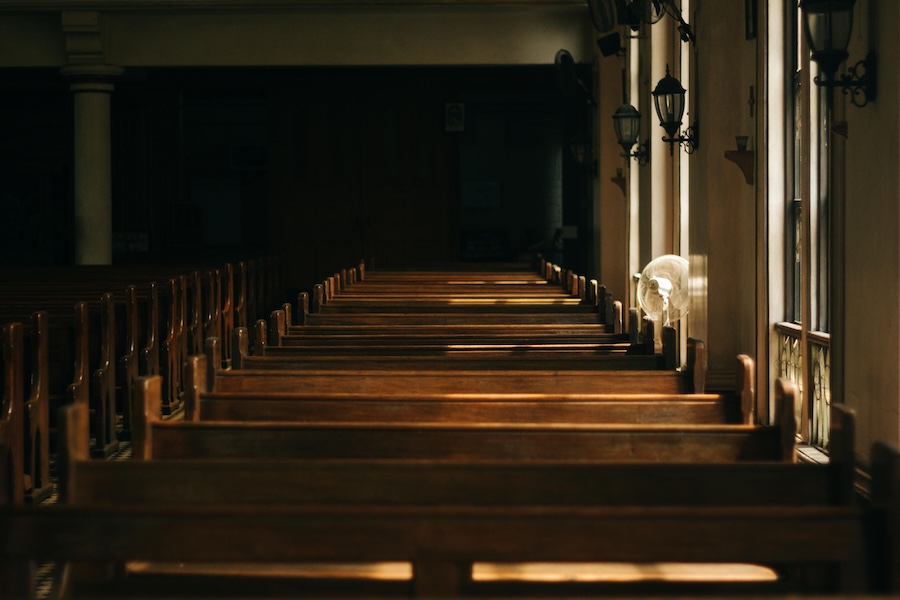Steadily declining membership, givings and returns on investments are prompting the Anglican Church of Canada to consider big structural and operational changes to its national governing body. The future of its denominational publication, The Anglican Journal, could also be on the line.
Time is of the essence, warns Rev. Kyle Wagner, rector of Christ Church in Dartmouth, N.S., and a member of a commission formed in 2023 to spark discussions on more effective ministry. “We are seeing a dramatic decline in Sunday attendance,” Wagner says. “The economic challenges that General Synod [the church’s national body] is experiencing … cannot be overlooked.”
You may unsubscribe from any of our newsletters at any time.
The nine-member lay-clerical commission came up with seven ideas for change. Although intended only as catalysts for conversation, the provocative suggestions could result in a significant reshaping of the Anglican Church’s corporate structure, operations and spending patterns in the next few years.
When the commission presents its report next year, its chair Archdeacon Rev. Monique Stone, rector of Christ Church, Bells Corners in Ottawa says, “we’ll recommend that General Synod 2025 take [the ideas] into further exploration.”
The seven “hypotheses” are:
- dismantle the colonial foundations of the church’s Council of the North, a group of sparsely populated dioceses financially assisted by General Synod, in order to embrace mutual interdependence with the Indigenous church;
- dismantle the racism and colonialism that’s built into governance structures in a bid to diversify participation;
- eliminate either the General Synod or the ecclesiastical provinces [four geographic groupings of dioceses across Canada];
- return to a model where the primate is also a diocesan bishop;
- reduce travel and meeting costs;
- re-vision Church House; and
- end General Synod-funded, independent journalism.
As part of the seventh hypothesis, the commission entertained the idea of no longer running the Anglican Journal as an editorially independent print and online publication. First, is there an innate contradiction in the corporate church supporting independent journalism? And second, although the newspaper generates considerable revenue, there would likely be net overall cost savings for staff, printing, and mailing.
But, Stone asks, if the church’s mandate is to be inclusive in proclaiming the gospel across the country and the globe, is it fair to eliminate a print newspaper when not everyone is online? Wagner counters, “Can the church afford the high cost of print publication in a digital world, whether we like it or not? I think this a critical hypothesis to explore.”
This isn’t the first time that the church has floated changes to the Anglican Journal. In previous years, it had been proposed that the denomination’s website and communications staff take over some of the Journal’s coverage, especially since the website and the Journal often covered the same issues.
More on Broadview:
Dwindling flocks, burgeoning costs
Restructuring is the order of the day across Canadian denominations, Stone says. “Many churches, especially mainline Christian churches have been looking at significant changes in how they work.”
Declining congregations and revenues, and rising expenditures are driving the need for change. According to the recent Canadian census, respondents identifying as Anglican affiliates fell from 2.5 million in 1971 to just over 1.3 million in 2021. But members on parish rolls are lower still, cautions Rev. Neil Elliot, the denomination’s statistics and research officer.
Membership fell from about 1.1 million in 1971 to just over 293,000 in 2021, and the numbers for actual church attendance are even smaller at 64,774 in 2022. “But these are expected to be slightly larger for 2023 when the numbers are complete,” Elliot says. “Attendance figures still seem to be bouncing back from the COVID years. This is surprising as we would have expected the bounce-back period to be short.” Data for 2023 show a strong trend to growth across most dioceses but whether this would be enough to impact the overall balance sheet is unclear.
In the current bleak financial landscape, diocesan contributions, General Synod’s largest source of revenue, have been trending downward for more than two decades and are expected to further shrink in the next couple of years.
Some financial cuts are already in progress, says Stone. Staff travel has been trimmed and more of General Synod’s work is being done online. Nevertheless, it’s clear the fiscal status quo is untenable. “We’re not the same church financially we were even 15 or 20 years ago.”
Reaction
Not everyone is on board with the hypothetical changes, but in terms of pushback, Wagner says, “Hypothesis number one regarding the Council of the North and the Indigenous church has generated the most displeasure.”
Northern bishops, such as David T.J. Lehmann of the Diocese of Caledonia in Prince Rupert, B.C., have criticized the commission’s lack of Indigenous representatives from the Council of the North, the Province of the Northern Lights, and the Sacred Circle (a national gathering of Indigenous peoples from across The Anglican Church of Canada and beyond). These historically vulnerable ministries, somewhat overlapping, rely on financial and other support from General Synod and could be existentially at risk in a major restructuring and redistribution of church resources.
Feedback to the hypotheses has been positive, too, says Wagner, noting some people have expressed thanks for the commission’s broaching of long-ignored issues. “Some may see the questions as too pointed or bold, but that is what we need to get the church moving in an engaging direction.”
***
Diana Swift is a former staff writer at the Anglican Journal and is now a freelance journalist in Toronto.















Why is the Anglican Church in this position? Because they have lost their way. Not one word in the recommendations to ask for God’s forgiveness for their “ worldly decisions “, losing sight of our Creator, lack of enthusiasm for my Lord & Saviour, lack of sharing the Hope we have with Jesus by our side. Please read the 7 letters God told John to write to the 7 cities which are recorded in Revelation. Read it,ask the Holy Spirit to reveal to you the message so that the Anglican Church can be alive again in Jesus. Ask & you will receive His message before it is too late. Jesus is coming back, soon. What will the people in the Anglican Church say to Him?
Six of the seven are solid ideas; #2 is a ridiculous waste of time, effort and money. Get over your own self-loathing and let the rest of us get on with making the world a better place!